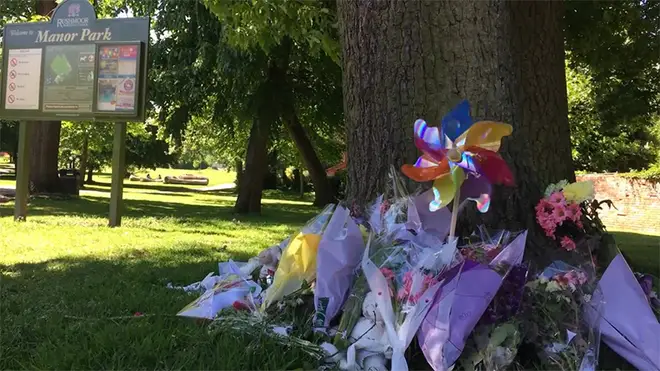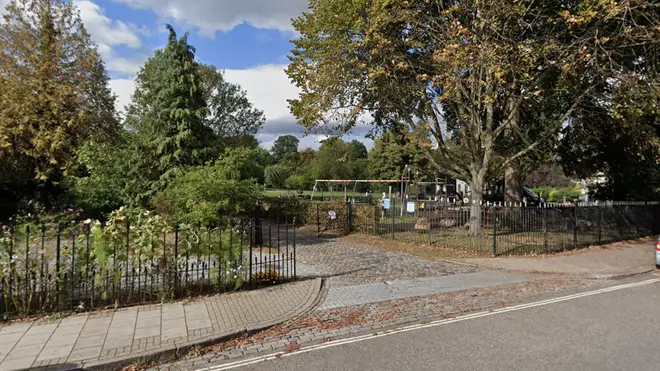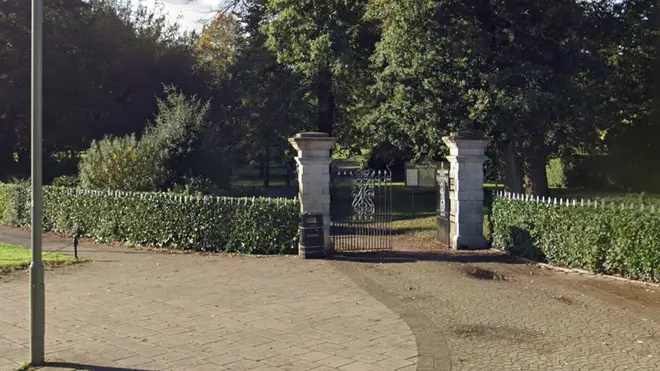
Shelagh Fogarty 1pm - 4pm
26 July 2021, 14:23 | Updated: 26 July 2021, 20:48

A mother convicted of the infanticide of her newborn daughter has avoided jail after being handed a two-year community order.
Babita Rai, a 24-year-old care worker from Reeves Road, Aldershot, was previously cleared of murder by a jury at Winchester Crown Court after her child was found dead in a park.
The newborn girl suffered several injuries, including multiple skull fractures, and was believed to have lived for less than six hours.
Her body was found by a gardener in a park in Aldershot, Hampshire, several days later on 19 May 2017.
Winchester Crown Court heard that the fatal injuries were inflicted by either Rai or another unknown person acting with her.
The child was not given a name and was referred to by police as Baby M.
Read more: Police hunt attacker after woman stabbed in London's Hyde Park
Read more: Joey Barton charged with assault after woman suffers head injury

Rai was handed a two-year community order by Mr Justice Johnson, with a rehabilitation activity requirement for 30 days, telling her that the mitigation in her case was "overwhelming".
He described how the defendant was living in a "patriarchal society in Nepal" when she became pregnant, which would have "brought great shame" on her and her family.
"You kept the pregnancy a secret, you yourself were in denial that you were pregnant," the judge told Rai.
"You came to this country to join your family some months into the pregnancy. You didn't seek any medical help. You continued to keep the pregnancy a secret, at least from the outside world and those who could have provided you with help and support.
"There is evidence that someone was with you around the time of the birth. You have not been forthcoming about that.
Read more: Man charged with murder after woman stabbed to death in south London
Read more: Police 'increasingly concerned' over missing girl, 12

"When you came to give birth, the psychological trauma from which you had been suffering came to a head. No longer could you deny the existence of what was now a living newborn baby girl.
"You, or very possibly a person you were with, inflicted dreadful injuries on that baby girl. She was left for dead and she did die within a very short time."
He said the balance of Rai's mind was disturbed when she committed infanticide, an offence that recognises a mother's criminal responsibility in such circumstances is "greatly reduced".
The judge told the court that though infanticide can carry a sentence of life imprisonment, custodial sentences are extremely rare.
There has only been one recorded instance of a prison term being imposed for the crime in the past 42 years, and that was later overturned by the Court of Appeal.
"The law, therefore, recognises that what is required in this type of case is very often compassion and support and rehabilitation, rather than punishment and retribution," the judge told Rai.

"That is certainly true in your case."
Prior to the baby's death, Rai was of good character and had not committed any offences in Nepal or the UK.
Mr Justice Johnson said she was living away from her home country, did not speak English, and was unable to access services for pregnant women and new mothers.
"You were wholly dependant on your family, for whom this baby would have been regarded as a curse, not a blessing," he told her.
Rai has spent 385 days in custody, equivalent to a sentence of more than two years, which would have been "particularly difficult" due to the coronavirus pandemic and her not speaking English.
The judge said a prison sentence was not required for public protection and would not address any risk Rai may pose to a future child of hers, particularly one from an unwanted pregnancy.
"None of that is to suggest that this offence was not serious, it was," he told Rai.
"It resulted in the ultimate harm to a newborn baby. But the mitigation in this case, as in many cases of its type, is overwhelming."
The defendant will be barred from engaging in regulated activities with vulnerable adults and children as part. She must also engage with her doctor and mental health professionals.
Speaking after the case, Detective Chief Inspector Dave Storey of Hampshire Police, described the circumstances surrounding the baby's death as "truly heartbreaking".
The "long and harrowing" investigation into what happened included police visiting 1,200 households, completing 5,000 questionnaires and viewing more than 1,000 hours of CCTV footage to identify Rai.
"It cannot be underestimated how much such a terrible event affects the local community," Mr Storey said.
"The investigation and subsequent trial has provided important information and answers as to what occurred.
"The jury examined these facts and sensibly returned infanticide as their verdict.
"This brings the case to a satisfactory conclusion, but death of Baby M will remain a tragedy for all involved."